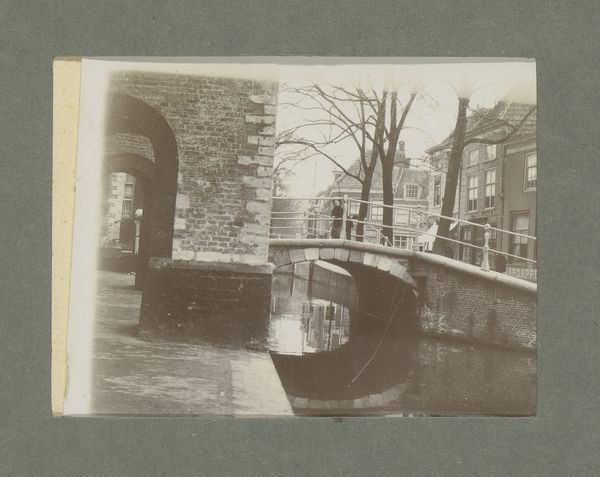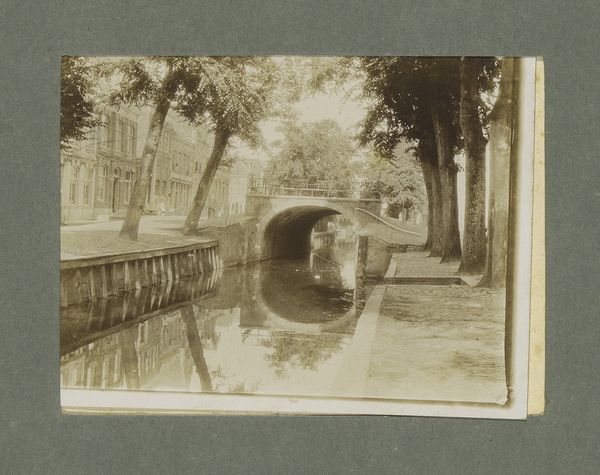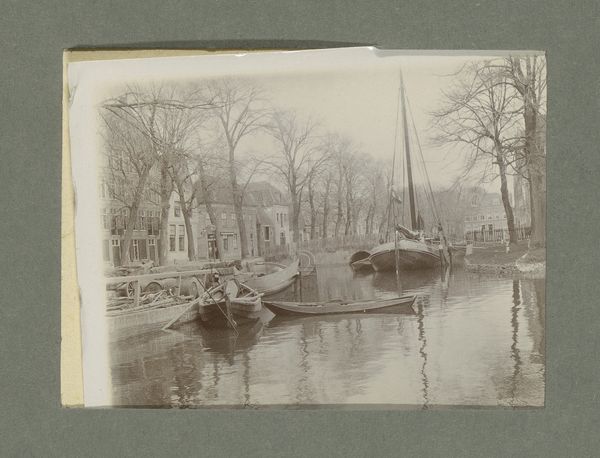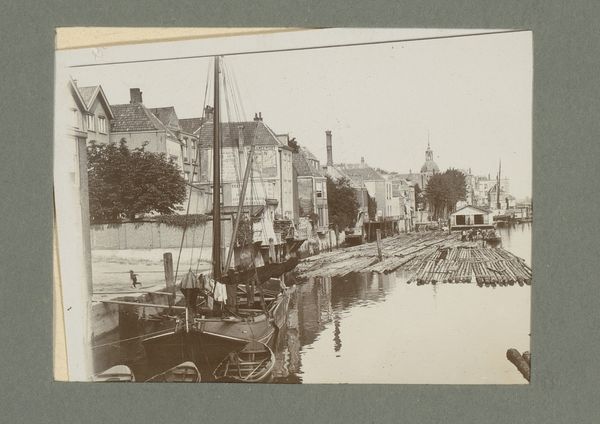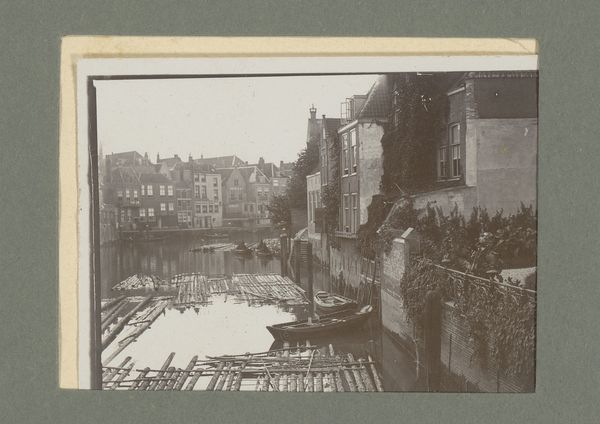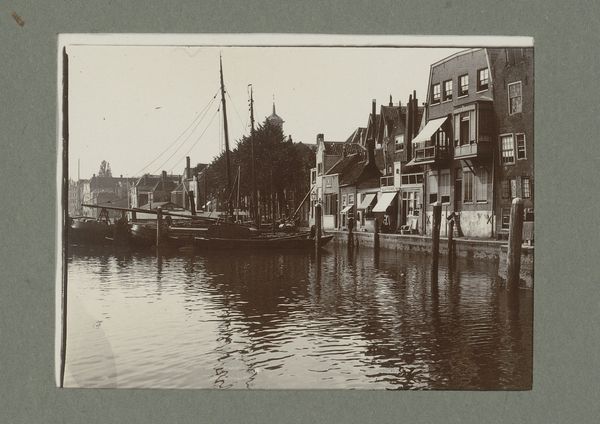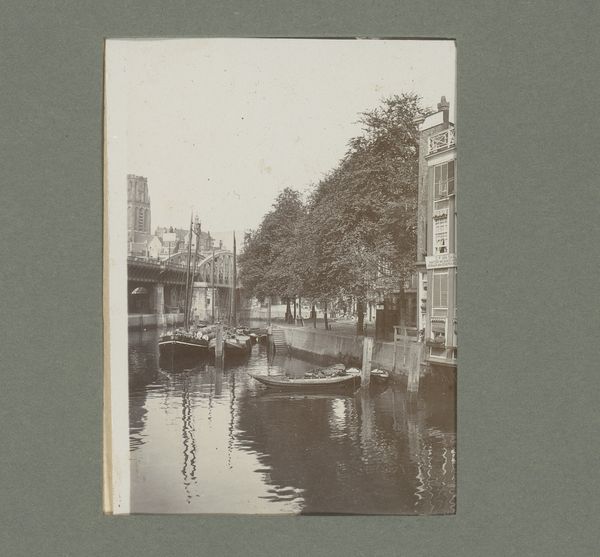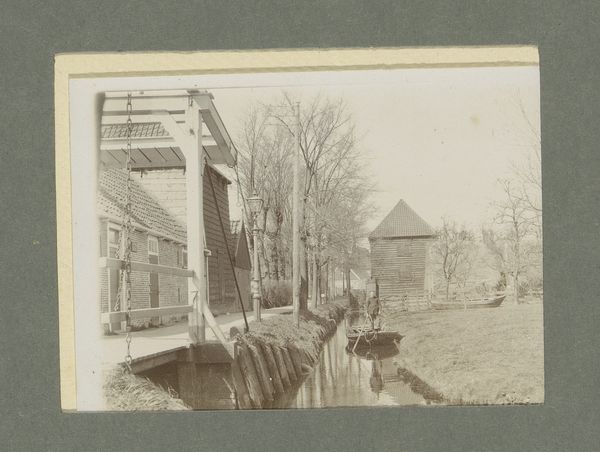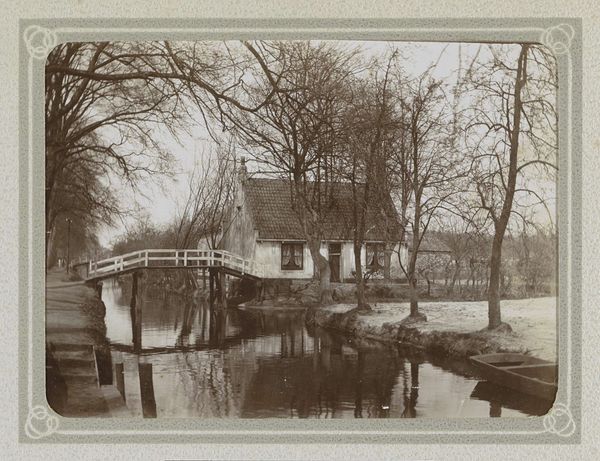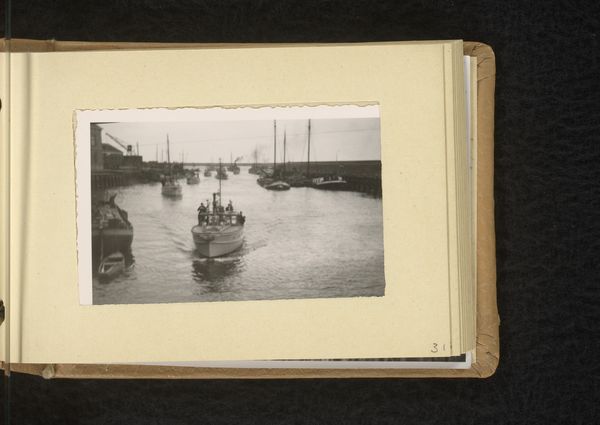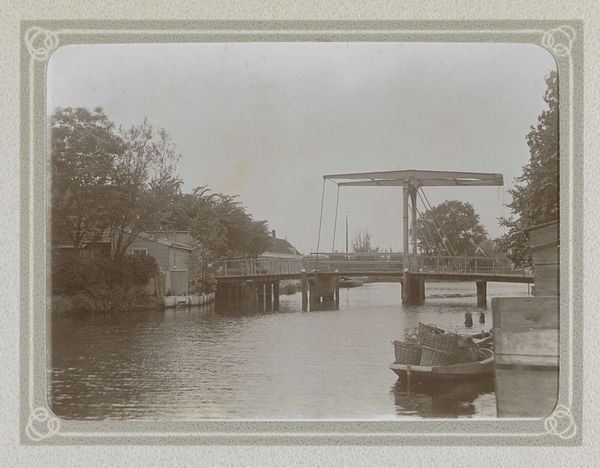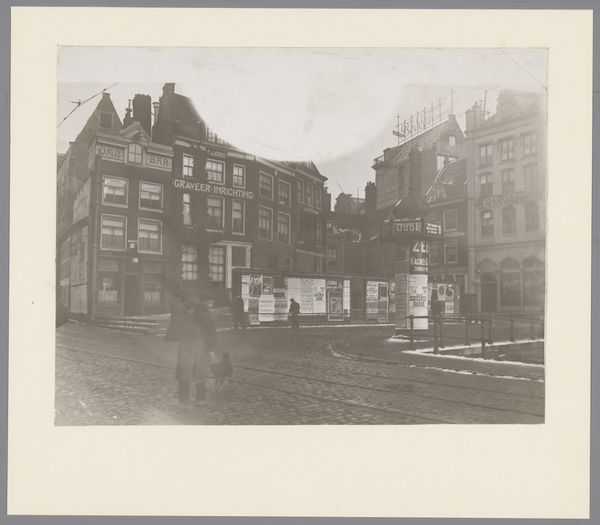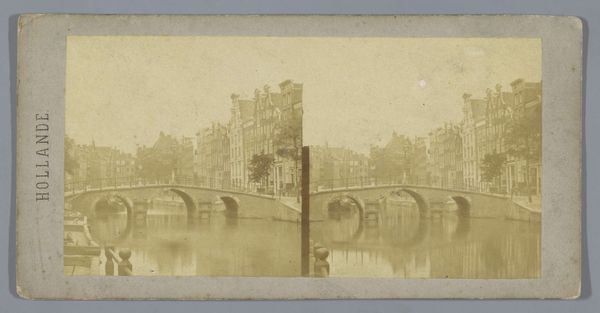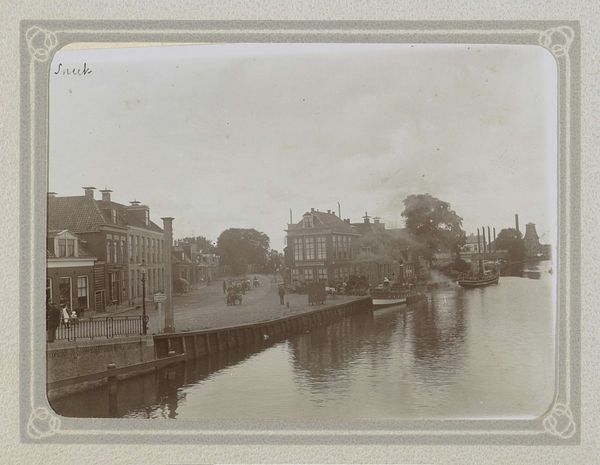
photography, gelatin-silver-print
#
pictorialism
#
street-photography
#
photography
#
gelatin-silver-print
#
cityscape
Dimensions: height 74 mm, width 99 mm
Copyright: Rijks Museum: Open Domain
Editor: This gelatin-silver print, "Gezicht op de Bloedbrug in Delft," made sometime between 1920 and 1940 by G. Hidderley, presents a quaint cityscape. It's so soft and atmospheric. What catches your eye when you look at this image? Curator: The bridge itself, and its reflection, create a powerful circular motif. Bridges, of course, are powerful symbols of transition, of connection between two worlds. But what do you think the reflection adds to this symbolic load? Editor: I guess the reflection makes it less about physical travel and more about mirroring and the subconscious? Like the bridge isn't just going somewhere, it's connecting conscious and unconscious thoughts. Curator: Precisely. Notice also how the church looms in the background. Its architectural style would certainly call to mind permanence, longevity, even divine authority. Editor: Yes, its placement suggests how civic life and religious belief co-existed. The bridge, literally, is dwarfed by it. I guess it signifies a hierarchy. Curator: Indeed. What I find intriguing, then, is how this quiet, everyday scene of the bridge becomes imbued with these larger cultural ideas simply through composition. How potent the vernacular, elevated! What a beautiful tension, isn't it? Editor: It is. Thinking about it, Hidderley captures not just a view, but a visual representation of history and cultural memory embedded within an ordinary space. It encourages reflection on cultural symbols present in the everyday!
Comments
No comments
Be the first to comment and join the conversation on the ultimate creative platform.
